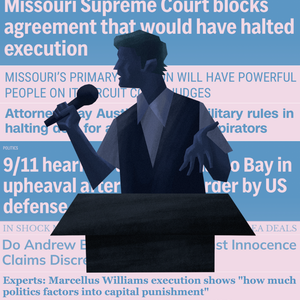
Officials in Indiana recently discussed how rarely the death penalty is applied in the state and the issues that raises regarding its purpose. Professor Joel Schuum of the McKinney School of Law in Indiana chaired a study by the American Bar Association that found “only a few of Indiana’s murder cases result in a prosecutor seeking a death sentence, fewer still result in the imposition of a death sentence by a jury or judges, and only a handful over the past 3 decades have resulted in the execution of a defendant.” Schuum added, “It’s Indiana’s other lottery, because it’s hard to decide. You have all these horrible murder cases. Who is the worst person? If only 1 % of these people are going to get the death penalty, what makes someone especially deserving of that?” Indiana Public Defender Council Executive Director Larry Landis agreed, “The rationalization that the proponents give is that: we need the death penalty for the worst of the worst. But, if you look at all the people who have been charged and the people who get the death penalty, no rational person can say – that’s the worst of the worst.” The discussion arose because prosecutors in Marion County recently elected not to seek death against 3 defendants charged with murder. There has not been a death penalty trial in Marion County in over a decade. The cost of the death penalty may be one reason. A 2010 fiscal report by the Legislative Services Agency found that the average cost of a death penalty trial was around $450,000. Some cases have cost more than $1 million. In contrast, the same study found that the average trial and cost of appeal of a life-without-parole case was one-tenth as much, $42,658. “As soon as they file that notice that they’re seeking death, that defendant is going to get 2 lawyers paid at taxpayer expense at over $100 per hour. They’re going to get unlimited experts. If there is a jury, it’s going to have to be sequestered. There’s going to be all sorts of added costs to that,” Prof. Schuum noted.
(T. Kehoe, “Officials talk death penalty,” WISH-TV, February 12, 2013). See Artbitrariness and Costs. Listen to DPIC’s podcast on Arbitrariness.
Arbitrariness
Oct 04, 2024


